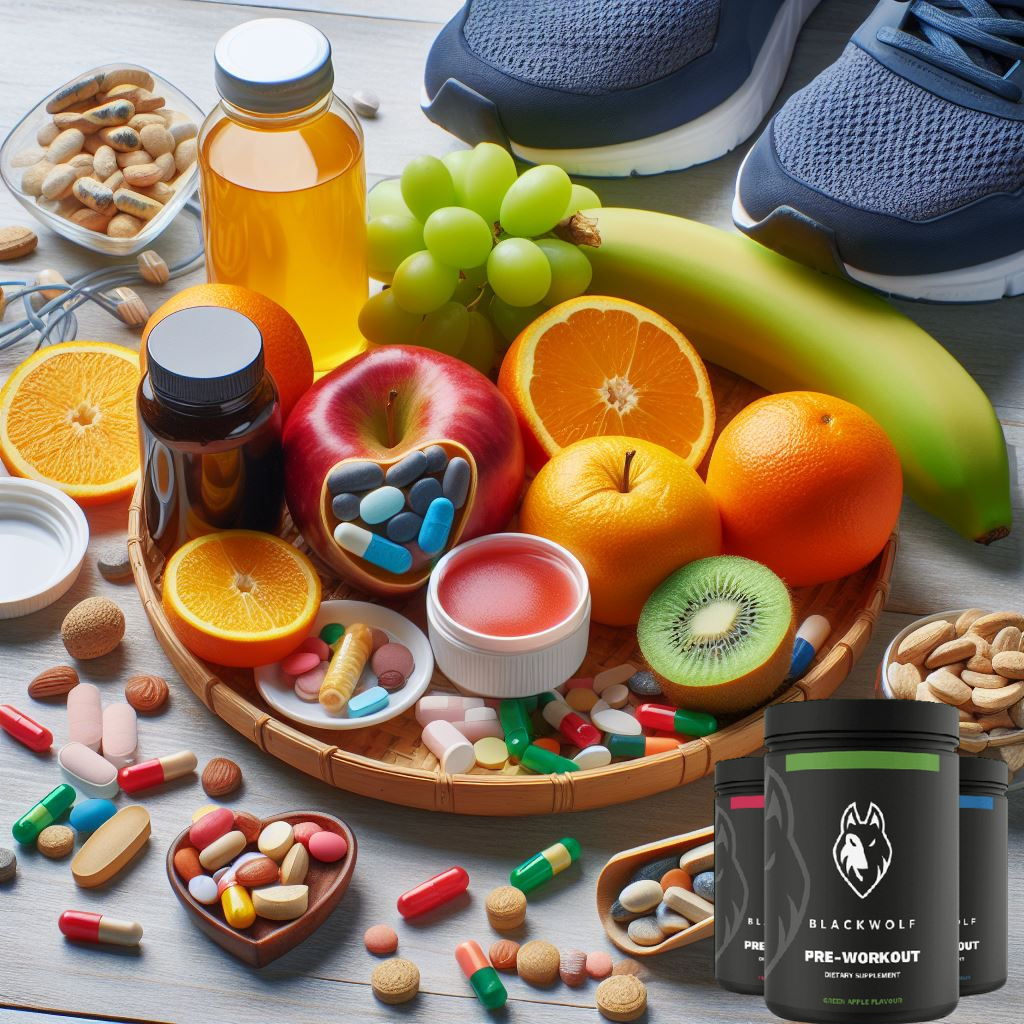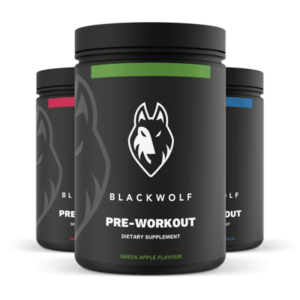Physical exercise is crucial to maintaining good health and optimal fitness. However, during these activities, our bodies consume and lose a significant amount of essential vitamins and minerals. Understanding these losses is fundamental to ensuring adequate recovery and maintaining nutritional balance.
I. Essential Vitamins and Minerals Lost During Physical Exercise:
During physical exercise, our body loses various minerals and vitamins, which are essential for recovery and maintaining overall health.
Here is a summary of the main elements lost during physical activity and their importance:
1. Sodium:
Sodium loss is mainly due to sweating. A deficiency can lead to hyponatremia, which is a medical emergency. Sodium is crucial for maintaining fluid and osmotic balance.
2. Chlorine:
During physical activities, sweating causes the loss of minerals and trace elements, including chlorine. This loss is due to the increase in body temperature and the effort to maintain effective thermoregulation through sweating. Sweat loses sodium chloride (NaCl), which is made up of sodium and chlorine. A chlorine deficiency can promote the appearance of muscle cramps and nervous and muscular fatigue.
3. Potassium:
This mineral plays an important role in almost all bodily functions, including muscle contractions and fluid balance. A potassium deficiency, particularly during prolonged exercise in a hot environment, can negatively affect cardiovascular, muscular, and respiratory recovery.
4. Magnesium:
Lost through sweat, magnesium is essential for protein synthesis, nerve function, and muscle relaxation, helping to prevent muscle injuries after strenuous activity.
5. Zinc:
Zinc is involved in oxidative stress mechanisms linked to physical exercise and the regulation of immune function. Losses of zinc can be up to 5 mg/day during heavy sweating, a significant figure given the recommended nutritional intake for an adult which is 12 mg/day.
6. Vitamin C:
An antioxidant that helps protect cells from damage caused by free radicals generated during intense exercise. It also plays a role in tissue repair and the functioning of the immune system.
7. Vitamin E:
Like vitamin C, vitamin E is an antioxidant that helps fight oxidative stress in the body. It is also important for skin and eye health, as well as immune function.
Although direct loss of vitamins C and E through sweat is limited, intense exercise increases the body’s need for these vitamins to counter oxidative stress.
8. B complex vitamins:
These vitamins, including B6, B12, and riboflavin, are crucial for converting food into energy and for the formation of new blood cells and tissue repair. They also play a role in the health of the nervous system. A deficiency in these vitamins can reduce performance capacity and slow recovery after exercise.
9. Phosphorus:
Important for the formation of bones and teeth, phosphorus also plays a role in how the body uses carbohydrates and fats. It is necessary for the production of ATP, a molecule that the body uses to store energy.
10. Iodine:
Iodine is crucial for the functioning of the thyroid gland, thus influencing metabolism and energy performance. Athletes lose iodine through sweat, especially in hot and humid conditions. A football player, for example, can lose around 150µg of iodine per hour through sweating. Iodine deficiency can lead to fatigue and reduced performance due to a slowed metabolism.
11. Selenium:
Selenium has antioxidant activity, helping to protect cells from damage. It is also important for the proper functioning of the thyroid. Although the article reviewed does not provide specific details on selenium loss during exercise, its role in cellular protection and its importance for the thyroid suggests that a balanced diet or supplementation could be beneficial for athletes, especially those who perform endurance activities in hot, humid environments where sweating and oxidative stress are high.
12. Iron:
Iron is a key mineral involved in the transport of oxygen in the blood. Endurance activities, in particular, can lead to iron loss through sweat and even the destruction of red blood cells. This loss can be worsened in women due to menstruation.
13. Calcium:
Calcium is well known for its role in bone health, but it is also essential for muscle contraction and blood clotting. Excessive calcium loss, especially in athletes subjected to strict diets or high-intensity exercise, can lead to decreased bone density and an increased risk of fractures.
II. How to recover them?
For an athlete or sportsman wishing to recover lost vitamins and minerals,
Here are suggestions for foods rich in key nutrients:
1. Calcium:
– Almonds: About 252 mg per 100 g.
– Algae (Kombu): 365 mg per 100 g.
– Dried fruits (Figs, Apricots): Dried figs approximately 193 mg per 100 g, Dried apricot approximately 71 mg per 100 g.
– Red fruits: Around 40 mg per 100 g.
– Milk (cow, goat, sheep): Cow’s milk is approximately 120 mg per 100 g, and Goat’s milk 127 mg per 100 g.
– Cooked spinach: 240 mg per 100 g.
– Tofu: About 430 mg for ½ cup.
– Parsley: Around 179 mg per 100 g.
2. Iron:
– Tofu: 5.4 mg per 100 g (firm).
– Green leafy vegetables: Cooked spinach, approximately 3.6 mg per 100 g.
– Dried fruits: Dried fig, approximately 0.55 mg per 100 g.
– Duck or goose liver: Around 30 mg per 100 g (raw).
– Black pudding: Around 23 mg per 100 g (grilled).
– Octopus: Around 9.5 mg per 100 g.
– Mussels: Around 8.4 mg per 100 g.
3. Selenium:
– Duck: Around 26.3 µg per 100 g (roasted).
– Ham: Around 22 µg per 100 g (roasted).
– Poached eggs: About 20 µg per large egg.
– Brewer’s yeast: Around 8.3 mg per 100 g.
4. Iodine:
– Marine algae: the content is very high 494 mg of iodine/100 g for the gracilaria (Gracilaria verrucosa), followed closely by the Breton kombu (Laminaria digitata, 486 mg of iodine/100 g) and the royal kombu ( Saccharina latissima, 341 mg iodine/100 g).
– Shellfish: Around 200 to 400 µg per 100 g.
– Fish: Around 2 to 131 µg per 100 g.
– Eggs: Around 32 to 70 µg per 100 g.
– Cheeses: Varied, depending on animal feed.
– Cereals: Varied, depending on the type of cereal.
5. Vitamin E:
– Mixed Nuts: About 2 mg per 1/4 cup.
– Fish roe: About 2 mg for 3 tbsp. soup.
– Corn or wheat bran: Around 2 mg per 30 g.
– Vegetable oils: About 2 mg per 1.5 tablespoons.
– Avocado: Around 2 mg for ½ avocado (100 g).
– Sardines: Around 2 mg per 100 g.
– Asparagus: 1-2 mg per 1/2 cup (boiled or raw).
– Spinach: 1-2 mg per 1/2 cup (boiled).
6. Zinc:
– Cashew nuts: 5.4 to 5.6 mg per 100 g.
– Flaxseed: Specific quantity not mentioned, but considered a good source.
– Oat flakes: 24% of the recommended daily intake per 100 g.
– Brewer’s yeast: 8.3 mg per 100 g.
– Maroilles and other cheeses: Vary depending on the type of cheese.
7. B Complex Vitamins:
– Eggs: Contain vitamins B2, B12.
– Brewer’s yeast: Source of B vitamins.
– Avocado: Contains vitamins B9 (folic acid).
8. Vitamin C:
– Peppers: Around 128.7 mg per 100 g (red, raw).
– Citrus fruits: Varies depending on the nature of these citrus fruits, oranges for example contain approximately 53.2 mg per 100 g.
– Red fruits: Vary depending on the type, strawberries contain approximately 58.8 mg per 100 g.
9. Zinc:
– Cashew nuts: 5.4 to 5.6 mg of zinc per 100g.
– Wholemeal bread: 5 mg of zinc per 100g.
– Linseed.
– Oat flakes: 24% of the daily zinc intake per 100g.
– Brewer’s yeast: 8.3 mg of zinc per 100g.
– Maroilles and other cheeses such as Vacherin Mont-d’Or and Morbier are also good sources.
10. Magnesium:
– Dried figs, arugula, cooked artichoke, broccoli, grapes, apple.
– Sea lettuce algae: 2780 mg of magnesium per 100 grams dehydrated.
– Flax seeds: approximately 372 mg per 100 grams.
– Banana: 32 mg of magnesium on average.
11. Potassium:
– Cocoa powder: 3900 mg per 100g.
– Dried kombu seaweed: 10600 mg/100g.
– Dried tomato: 3430 mg/100g.
– White beans: 1660 mg/100g.
– Dried apricot: 1090 mg/100g.
– Pistachio: 1020 mg/100g.
– Raw sardine: 580 mg/100g.
– RawSpinach: 504 mg/100g.
– Raw fennel: 405 mg/100g.
12. Chlorine and Sodium:
These elements are generally present in a varied diet. Sodium is abundant in salty and processed foods, while chlorine is often found in the same sources as sodium. For a balanced diet, it is important to limit salt consumption and choose fresh, unprocessed foods.
Conclusion:
For athletes and active people, special attention must be paid to diet to compensate for the loss of these essential nutrients. A balanced diet rich in fruits, vegetables, protein, and whole grains can help replenish these vitamins and minerals. In some cases, supplements may be necessary, but it is always recommended to consult a healthcare professional before starting supplementation.
If you want to train like a professionals we recommend this product to consume before training which can reduce the sudden loss of these precious minerals and vitamins that our body needs.
1. Use of the product:
BlackWolf is designed to increase energy, focus, and endurance during workouts. It contains proven ingredients in optimal amounts to support these goals.
2. Advantages:
– Scientifically Proven Ingredients: The product contains scientifically validated and effectively dosed ingredients.
– Increased Energy and Focus: It aims to provide long-lasting energy without unwanted side effects like jitters or post-workout energy dips.
– Pleasant Flavors: Available in several fruity flavors.
– Caffeine-Free Options: A caffeine-free version is available for those who work out in the evening or avoid caffeine.
– Vegan and Made in the USA: Suitable for vegans and produced in the United States.
3. What is offered with the product:
– 10 Week Training Program and Cookbook: Each order includes a 10-week workout program and fitness recipe book, designed to improve fitness and strength.
– Use by Professional Athletes: The product is used and recommended by elite athletes.
– Free shipping to the United States.
To learn more and order, click here.


